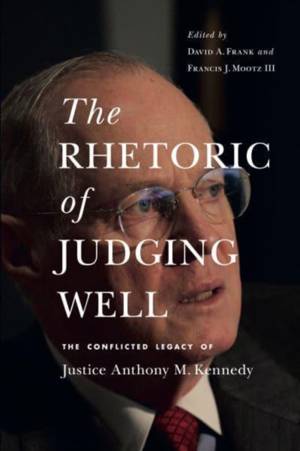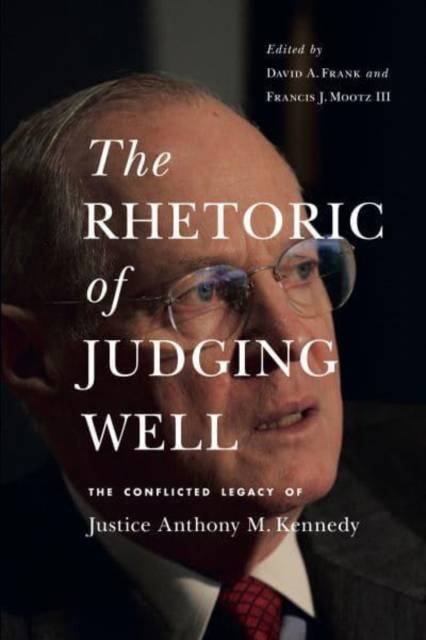
- Afhalen na 1 uur in een winkel met voorraad
- Gratis thuislevering in België vanaf € 30
- Ruim aanbod met 7 miljoen producten
- Afhalen na 1 uur in een winkel met voorraad
- Gratis thuislevering in België vanaf € 30
- Ruim aanbod met 7 miljoen producten
The Rhetoric of Judging Well
The Conflicted Legacy of Justice Anthony M. Kennedy
Omschrijving
Known as the "swing justice," Justice Anthony M. Kennedy provided the key vote determining which way the Supreme Court would decide on some of the most controversial cases in US history. Though criticized for his unpredictable rulings, Kennedy also gained a reputation for his opinion writing and, more so, for his legal rhetoric.
This book examines Justice Kennedy's legacy through the lenses of rhetoric, linguistics, and constitutional law. Essays analyze Kennedy's opinion writing in landmark cases such as Romer v. Evans, Obergefell v. Hodges, and Planned Parenthood v. Casey. Using the Justice's rhetoric as an entry point into his legal philosophy, this volume reveals Kennedy as a justice with contradictions and blind spots--especially on race, women's rights, and immigration--but also as a man of empathy deeply committed to American citizenship.
A sophisticated assessment of Justice Kennedy's jurisprudence, this book provides new insight into Kennedy's legacy on the Court and into the role that rhetoric plays in judging and in communicating judgment.
In addition to the editors, the contributors to this volume are Ashutosh Bhagwat, Elizabeth C. Britt, Martin Camper, Michael Gagarin, James A. Gardner, Eugene Garver, Leslie Gielow Jacobs, Sean Patrick O'Rourke, Susan E. Provenzano, Clarke Rountree, Leticia M. Saucedo, Darien Shanske, Kathryn Stanchi, and Rebecca E. Zietlow.
Specificaties
Betrokkenen
- Uitgeverij:
Inhoud
- Aantal bladzijden:
- 294
- Taal:
- Engels
- Reeks:
Eigenschappen
- Productcode (EAN):
- 9780271094847
- Verschijningsdatum:
- 21/03/2023
- Uitvoering:
- Hardcover
- Formaat:
- Genaaid
- Afmetingen:
- 152 mm x 229 mm
- Gewicht:
- 603 g

Alleen bij Standaard Boekhandel
Beoordelingen
We publiceren alleen reviews die voldoen aan de voorwaarden voor reviews. Bekijk onze voorwaarden voor reviews.










